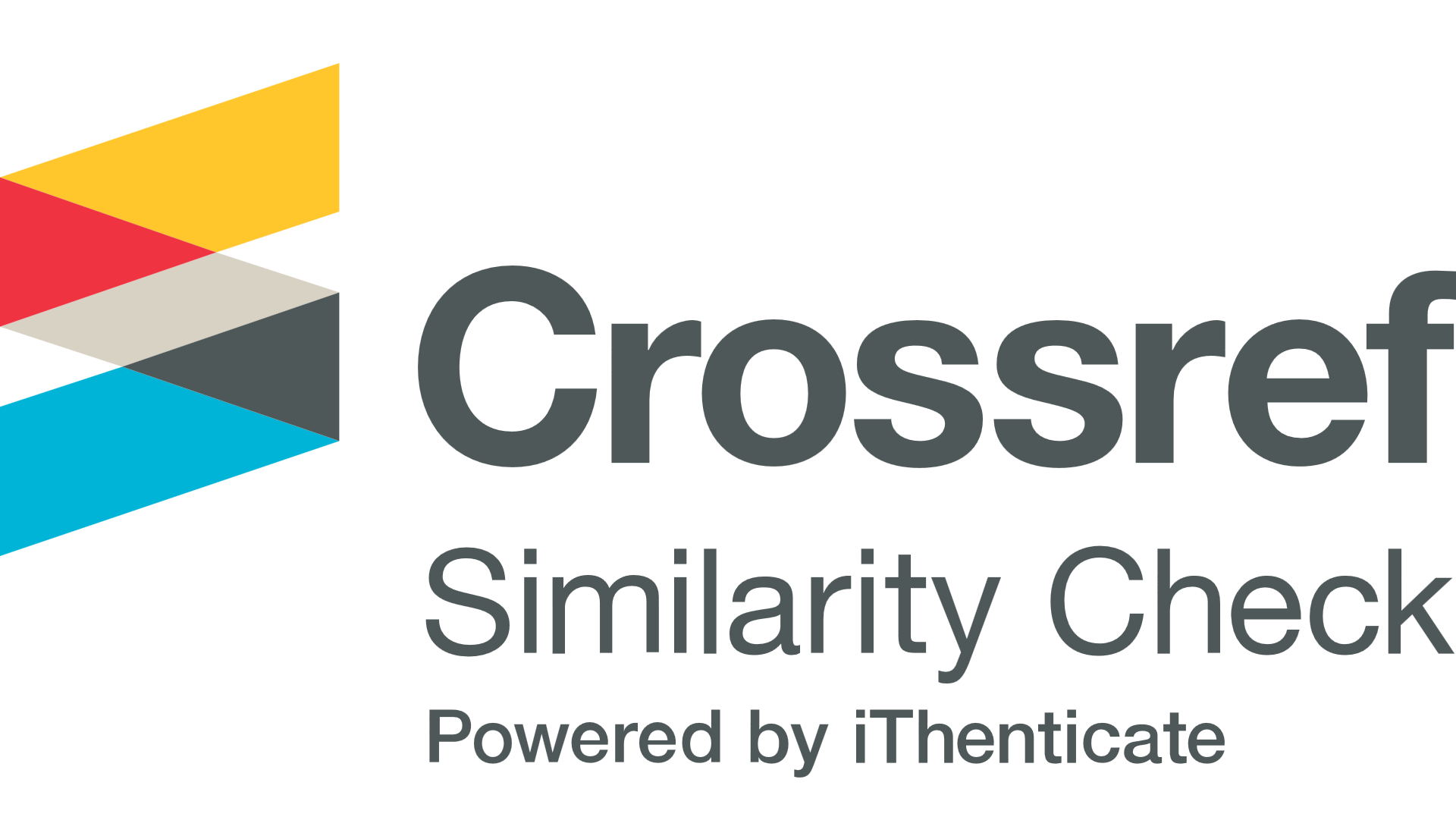BLOCKCHAIN TECHNOLOGY AS A DISRUPTIVE MECHANISM AND MODERNIZATION IN ECUADOR'S ELECTORAL CONTROL SYSTEM
Keywords:
blockchain, voting system, e-voting, traditional electoral system, contributions, challengesAbstract
National elections, especially in developing countries, were characterized by limitations in the transparency of these processes, leading to trust issues in the results. In response, it became crucial to find tools that could strengthen democracy. Blockchain emerged as an innovative technology with the potential to address these problems. Numerous studies have been conducted on electoral systems based on this technology; however, it has not yet fully solidified as a completely reliable tool. To address this, a review of 43 studies was undertaken with the aim of identifying the factors to consider and the techniques employed to make blockchain functional for voting. Simultaneously, the benefits and disadvantages of implementing this idea in Ecuador were explored. It was found that, while blockchain contributes elements such as voter authentication, anonymity, and information privacy, it presents substantial challenges that could complicate its implementation. These challenges are primarily linked to technological infrastructure, digital divides, and social acceptance. Based on these findings, it can be inferred that a blockchain-based voting system may not currently be applicable in Ecuador. However, there is the possibility of gradually adapting the benefits offered by this tool in future efforts until the desired results are achieved.
Keywords: blockchain, voting system, e-voting, traditional electoral system, contributions, challenges.
References
Ahmed, M. R., Javed Mehedi Shamrat, F. M., Ali, M. A., Mia, M. R., & Khatun, M. A. (2020). The future of electronic voting system using blockchain. International Journal of Scientific and Technology Research, 9(2), 4131-4134. Scopus.
AlAbri, R., Shaikh, A. K., Ali, S., & Al-Badi, A. H. (2022). Designing an E-Voting Framework Using Blockchain Technology: A Case Study of Oman. International Journal of Electronic Government Research (IJEGR), 18(2), 1-29. https://doi.org/10.4018/IJEGR.298203
Alam, M., Yusuf, M. O., & Sani, N. A. (2020). Blockchain technology for electoral process in Africa: A short review. International Journal of Information Technology (Singapore), 12(3), 861-867. Scopus. https://doi.org/10.1007/s41870-020-00440-w
Annunziata, R., Arena, E., & Basualdo Franchino, U. (2021). ¿Giro digital?: Desafíos de los presupuestos participativos argentinos frente a la pandemia de Covid-19. https://doi.org/10.5354/0719-5338.2021.61609
Baudier, P., Kondrateva, G., Ammi, C., & Seulliet, E. (2021). Peace engineering: The contribution of blockchain systems to the e-voting process. Technological Forecasting and Social Change, 162, 120397. https://doi.org/10.1016/j.techfore.2020.120397
Benabdallah, A., Audras, A., Coudert, L., El Madhoun, N., & Badra, M. (2022). Analysis of Blockchain Solutions for E-Voting: A Systematic Literature Review. IEEE Access, 10, 70746-70759. https://doi.org/10.1109/ACCESS.2022.3187688
Benítez Martínez, F. L. (2021). Un modelo de gobernabilidad para procesos de eDemocracia basados en una red neuronal de blockchain. Universidad de Granada. https://digibug.ugr.es/handle/10481/65422
Burhanuddin, N. S., Zaman, F. H. K., Yassin, A. I. M., & Tahir, N. M. (2018). Blockchain in voting system application. International Journal of Engineering and Technology(UAE), 7(4), 156-162. Scopus. https://doi.org/10.14419/ijet.v7i4.11.20793
CNE. (2023). CNE - Consejo Nacional Electoral—Construyendo Democracia—Ecuador. https://www.cne.gob.ec/cne/
Damavandi, S., & Nogoorani, S. D. (2022). An Electronic Voting Scheme Based on Blockchain Technology and Zero-Knowledge Proofs. ISeCure, 14(3 Special Issue), 123-133. Scopus. https://doi.org/10.22042/isecure.2022.14.3.13
Daramola, O., & Thebus, D. (2020). Architecture-Centric Evaluation of Blockchain-Based Smart Contract E-Voting for National Elections. Informatics, 7(2), Article 2. https://doi.org/10.3390/informatics7020016
Farooq, M. S., Iftikhar, U., & Khelifi, A. (2022). A Framework to Make Voting System Transparent Using Blockchain Technology. IEEE Access, 10, 59959-59969. Scopus. https://doi.org/10.1109/ACCESS.2022.3180168
Huang, J., He, D., Obaidat, M. S., Vijayakumar, P., Luo, M., & Choo, K.-K. R. (2021). The Application of the Blockchain Technology in Voting Systems: A Review. Encuestas de Computación ACM, 54(3), 60:1-60:28. https://doi.org/10.1145/3439725
Ibrahim, M., Ravindran, K., Lee, H., Farooqui, O., & Mahmoud, Q. H. (2021). ElectionBlock: An Electronic Voting System using Blockchain and Fingerprint Authentication. 2021 IEEE 18th International Conference on Software Architecture Companion (ICSA-C), 123-129. https://doi.org/10.1109/ICSA-C52384.2021.00033
Imperial, M. (2021). The Democracy to Come? An Enquiry Into the Vision of Blockchain-Powered E-Voting Start-Ups. Frontiers in Blockchain, 4, 587148. https://doi.org/10.3389/fbloc.2021.587148
Jafar, U., Ab Aziz, M. J., Shukur, Z., & Hussain, H. A. (2022). A Systematic Literature Review and Meta-Analysis on Scalable Blockchain-Based Electronic Voting Systems. Sensors, 22(19), Article 19. https://doi.org/10.3390/s22197585
Jafar, U., Aziz, M. J. A., & Shukur, Z. (2021). Blockchain for Electronic Voting System—Review and Open Research Challenges. Sensors, 21(17), 5874. https://doi.org/10.3390/s21175874
Khan, K. M., Arshad, J., & Khan, M. M. (2018). Secure Digital Voting System Based on Blockchain Technology. International Journal of Electronic Government Research (IJEGR), 14(1), 53-62. https://doi.org/10.4018/IJEGR.2018010103
Kshetri, N., & Voas, J. (2018). Blockchain-Enabled E-Voting. IEEE Software, 35(4), 95-99. https://doi.org/10.1109/MS.2018.2801546
Kumar, K., & Sharma, A. (2019). E-voting in India using blockchain and it’s modus operandi. Journal of Computational and Theoretical Nanoscience, 16(9), 3774-3777. Scopus. https://doi.org/10.1166/jctn.2019.8249
Lahane, A. A., Patel, J., Pathan, T., & Potdar, P. (2020). Blockchain technology based e-voting system. ITM Web of Conferences, 32, 03001. https://doi.org/10.1051/itmconf/20203203001
Leune, K., & Punjwani, J. (2021). Enhancing Electronic Voting With A Dual-Blockchain Architecture. Ledger, 6. https://doi.org/10.5195/ledger.2021.199
McCorry, P., Mehrnezhad, M., Toreini, E., Shahandashti, S. F., & Hao, F. (2021). On Secure E-Voting over Blockchain. Digital Threats: Research and Practice, 2(4). Scopus. https://doi.org/10.1145/3461461
Ministerio de Economía y Finanzas. (2021). Ministerio de Economía y Finanzas transfiere USD 3,6 millones para logística de FF.AA. en proceso electoral. [Estatal]. finanzas.gob.ec. https://www.finanzas.gob.ec/ministerio-de-economia-y-finanzas-transfiere-usd-36-millones-para-logistica-de-ff-aa-en-proceso-electoral/
Mitra, M., & Chowdhury, A. (2020). A modernized voting system using fuzzy logic and blockchain technology. International Journal of Modern Education and Computer Science, 12(3), 17-25. Scopus. https://doi.org/10.5815/ijmecs.2020.03.03
Monrat, A. A., Schelén, O., & Andersson, K. (2019). A Survey of Blockchain From the Perspectives of Applications, Challenges, and Opportunities. IEEE Access, 7, 117134-117151. https://doi.org/10.1109/ACCESS.2019.2936094
Morocho, N., Mosquera, R., Pacheco Molina, A., & Campuzano, J. (2020). La tecnología blockchain y sus posibilidades de uso en la provincia de El Oro. 593 Digital Publisher CEIT, 5(Extra 6-1), 314-327.
N, J. L. M., & Herrera, E. J. C. (2019). Tecnologías Blockchain y sus aplicaciones. Visión Antataura, 3(2), Article 2.
NOTIMUNDO. (2020, abril 26). CNE ya debate ideas para que voto sea virtual en Ecuador. https://notimundo.com.ec/cne-ya-debate-ideas-para-que-voto-sea-virtual-en-ecuador/
Page, M. J., McKenzie, J. E., Bossuyt, P. M., Boutron, I., Hoffmann, T. C., Mulrow, C. D., Shamseer, L., Tetzlaff, J. M., Akl, E. A., Brennan, S. E., Chou, R., Glanville, J., Grimshaw, J. M., Hróbjartsson, A., Lalu, M. M., Li, T., Loder, E. W., Mayo-Wilson, E., McDonald, S., … Moher, D. (2021). The PRISMA 2020 statement: An updated guideline for reporting systematic reviews. BMJ, 372, n71. https://doi.org/10.1136/bmj.n71
Pawlak, M., & Poniszewska-Marańda, A. (2021). Trends in blockchain-based electronic voting systems. Information Processing & Management, 58(4), 102595. https://doi.org/10.1016/j.ipm.2021.102595
Pereira, B. M. B., Torres, J. M., Sobral, P. M., Moreira, R. S., Soares, C. P. de A., & Pereira, I. (2023). Blockchain-Based Electronic Voting: A Secure and Transparent Solution. Cryptography, 7(2), Article 2. https://doi.org/10.3390/cryptography7020027
Saeed, S. H., Hadi, S. M., & Hamad, A. H. (2022). Iraqi Paradigm E-Voting System Based on Hyperledger Fabric Blockchain Platform. Ingenierie Des Systemes d’Information, 27(5), 737-745. Scopus. https://doi.org/10.18280/isi.270506
Sallal, M., de Fréin, R., & Malik, A. (2023). PVPBC: Privacy and Verifiability Preserving E-Voting Based on Permissioned Blockchain. Future Internet, 15(4), Article 4. https://doi.org/10.3390/fi15040121
Seftyanto, D., Amiruddin, A., & Hakim, A. R. (2019). Design of Blockchain-Based Electronic Election System Using Hyperledger: Case of Indonesia. 2019 4th International Conference on Information Technology, Information Systems and Electrical Engineering (ICITISEE), 228-233. https://doi.org/10.1109/ICITISEE48480.2019.9003768
Shahzad, B., & Crowcroft, J. (2019). Trustworthy Electronic Voting Using Adjusted Blockchain Technology. IEEE Access, 7, 24477-24488. https://doi.org/10.1109/ACCESS.2019.2895670
Solano, C. (2024). Blockchain, más allá de las criptomonedas. https://repository.usta.edu.co/handle/11634/53465
Song, J.-G., Moon, S.-J., & Jang, J.-W. (2021). A Scalable Implementation of Anonymous Voting over Ethereum Blockchain. Sensors, 21(12), Article 12. https://doi.org/10.3390/s21123958
Taş, R., & Tanrıöver, Ö. Ö. (2020). A Systematic Review of Challenges and Opportunities of Blockchain for E-Voting. Symmetry, 12(8), Article 8. https://doi.org/10.3390/sym12081328
Vladucu, M.-V., Dong, Z., Medina, J., & Rojas-Cessa, R. (2023). E-Voting Meets Blockchain: A Survey. IEEE Access, 11, 23293-23308. Scopus. https://doi.org/10.1109/ACCESS.2023.3253682
Wahab, Y. M., Ghazi, A., Al-Dawoodi, A., Alisawi, M., Abdullah, S. S., Hammood, L., & Nawaf, A. Y. (2022). A Framework for Blockchain Based E-Voting System for Iraq. International Journal of Interactive Mobile Technologies, 16(10), 210-222. Scopus. https://doi.org/10.3991/ijim.v16i10.30045
Welfare, A. (2019). Introduction to Blockchain Technology (pp. 7-35). https://doi.org/10.1002/9781119578048.ch1
Zapata, V. (2023, febrero 6). Ecuador utilizó tecnología blockchain en elecciones seccionales. BeInCrypto. https://es.beincrypto.com/ecuador-utilizo-tecnologia-blockchain-elecciones-seccionales/
Zayed, K., & Placide, R. (2020). Advocating for a blockchain voting system in the USA. International Journal of Technology Enhanced Learning, 12(3), 306-315. Scopus. https://doi.org/10.1504/IJTEL.2020.107985
Published
How to Cite
Issue
Section
License
Copyright (c) 2024 Scientific Journal INGENIAR: Engineering, Technology and Research

This work is licensed under a Creative Commons Attribution-NonCommercial-ShareAlike 4.0 International License.

















